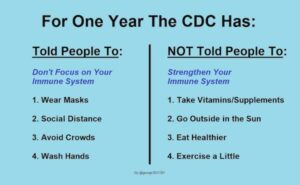ACLED 2020: THE YEAR IN REVIEW
KEY FINDINGS
Overall conflict levels decreased. Political violence decreased by approximately 22% — or 24,539 events — compared to 2019. ACLED records 113,170 events in 2019, relative to 88,631 in 2020. Political violence decreased in every region of the world covered by ACLED, except for Africa. Fatalities from political violence decreased by 19%, from 145,883 in 2019 to 118,429 in 2020. Fatalities declined in every region save for Africa.
Still, political violence increased in more countries than it decreased. While political violence decreased worldwide on an aggregate level, it increased in nearly half the world’s countries: violence rose in 49% of all countries covered by ACLED in 2020, whereas it declined in 48%. Political violence levels held steady in the remaining 3%.
Conventional conflicts continued to rage. The countries that registered the highest number of political violence events in 2020 are predominantly those experiencing conventional conflicts, like Syria, Yemen, Ukraine, and Afghanistan. That Mexico also tops the list reveals how the country’s gang violence has created a conflict environment that rivals an active warzone. All of these countries, with the exception of Ukraine, additionally registered the highest numbers of fatalities in 2020, underscoring the continued lethality of these ongoing conflicts. At the same time, many of these countries also experienced the largest overall declines in conflict activity in 2020. That they continue to top the list of most violent countries speaks to the persistence of these conflicts amid the COVID-19 pandemic.
State forces remained the most active conflict agents. Despite the continued rise of violent non-state actors, state forces participated in over half — 52% — of all political violence last year. Three of the five most active conflict agents in 2020 were state forces operating domestically.
Identity militia activity is on the rise. Nearly all types of conflict actors reduced their activity overall between 2019 and 2020, except for identity militias. Identity militias are the only actor type that increased their engagement in violence. Identity militias — which ACLED defines as armed groups organized around a collective, common feature including community, ethnicity, region, religion, or livelihood — include the Dan Na Ambassagou ethnic Dogon militia in Mali, the Tribal Mobilization Forces in Iraq, and the Volunteers for Defense of Homeland in Burkina Faso. There was a proliferation of identity militias in Africa especially last year, with a 46% increase in the number of distinct, named identity militias active in 2020 relative to 2019.
While both civilian targeting and civilian fatalities decreased on the aggregate level, civilian targeting events increased in half of all countries. Civilians continued to come under attack in a variety of contexts, from conventional conflicts in Syria and Yemen, to gang wars in Mexico and Brazil. In some spaces, civilians came under multiple concurrent threats, such as in India, where they faced persistent mob and communal violence as well as conflicts in Kashmir and the Red Corridor. The greatest increases in civilian targeting were recorded in Brazil, Nigeria, Iraq, the Democratic Republic of Congo, and Cameroon. Overall, civilian targeting rose in 50% of all countries covered by ACLED. Anonymous or unidentified armed groups and gangs were responsible for the largest proportion of civilian targeting around the world last year at 52% of all events, as well as 54% of all reported civilian fatalities. Of identified actors, state forces posed the greatest threat to civilians last year, responsible for 17% of civilian targeting and 15% of civilian fatalities, followed by rioters and violent mobs, which were responsible for 13% of civilian targeting and 3% of civilian fatalities. All forms of civilian targeting decreased from 2019 to 2020, save abductions and forced disappearances, which increased dramatically in Nigeria (by 169%), Yemen (by 114%), Syria (by 36%), and the Democratic Republic of Congo (by 21%).
Despite the pandemic, demonstrations increased worldwide. Following an initial drop at the start of the health crisis, overall demonstration activity rose by 7% in 2020 compared to 2019, with an increase recorded in 58% of all countries covered by ACLED. Approximately 93% of all demonstrations were peaceful, while 7% were met with some form of intervention — an increase in the proportion of demonstrations that were peaceful, and a decline in the proportion of demonstrations met with intervention, relative to the year prior. Demonstrations were also less deadly in 2020: ACLED records a 38% decline in the number of fatalities reported during demonstrations last year, particularly in the Middle East, driven by a decrease in the lethality of violence reported at demonstrations in Iraq and Iran. As ACLED’s coverage of the United States does not yet extend to 2019, data on American demonstration trends are not included in the comparison figures above. However, in 2020, the United States registered the highest number of demonstrations in the world, with nearly as many demonstrations as the next two countries — India and Pakistan — combined.
Read full article HERE
 Norway has been one of the most successful countries in Europe in the fight against Covid-19, with only Iceland experiencing fewer deaths relative to the size of its population.
Norway has been one of the most successful countries in Europe in the fight against Covid-19, with only Iceland experiencing fewer deaths relative to the size of its population.




